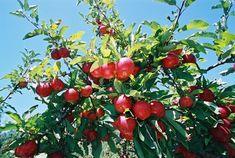
New Zealand needs to pursue bilateral and regional trade agreements to ensure its horticulture exports are not disadvantaged in competition with other senders such as Chile, a new report has found.
The study by the NZ Horticulture Export Authority, the NZ Fruitgrowers Federation and the NZ Vegetable & Potato Growers Federation identified a daunting number of barriers to trade, many of which it deemed had been put in place as protectionist moves by governments.
The report found New Zealand to be a highly successful horticultural exporter despite facing tariffs, sales taxes, freight and insurance costs, and border inspections.
Tariffs on apples, kiwifruit and other fruit and vegetables were calculated at NZ$160 million (£63m) a year while competitors have free-trade agreements for some products on the same markets at a zero tariffs.
The study found that on top of $160m in direct tariffs, exporters face many additional costs.
Many markets for example calculate duties on a cost plus insurance plus freight (CIF) basis. This means the tariff is calculated including the costs of freight, insurance and sales tax.
“We are taxed on a tax. For example a 25 per cent tariff becomes 29.5 per cent when subject to a 17 per cent value-added tax,” the report claimed.



